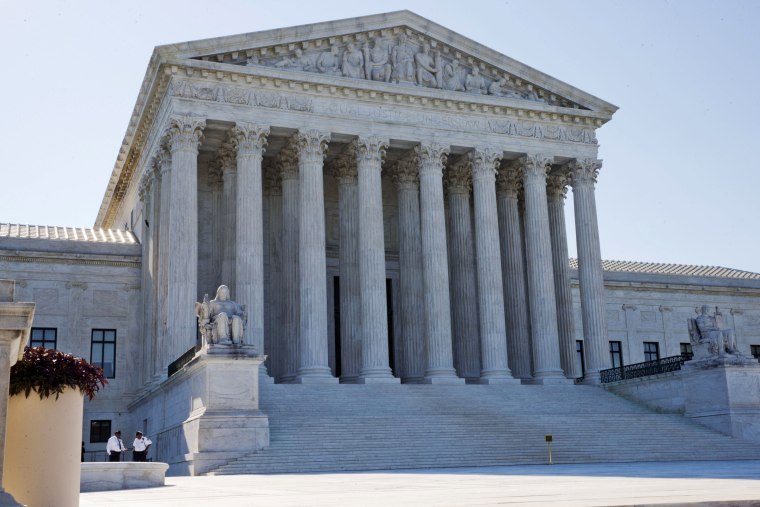The mandatory life sentences of a thousand inmates who committed their crimes as juveniles could be reduced, depending on the outcome of a U.S. Supreme Court case the justices consider Tuesday.
Three years ago, the court ruled that mandatory life sentences for juvenile offenders in murder cases were unconstitutional, violating the ban on cruel and unusual punishment. A judge or a jury must be able to consider the "hallmark features" of youth, the court said — "among them, immaturity, impetuosity, and failure to appreciate risks and consequences."
RELATED: Supreme Court Poised to Lean Right After Historic Term
The ruling barred future mandatory sentences of life without parole for juveniles — those under 18 when they committed their crimes. Now, the court considers whether that rule should apply to those sentenced before its 2012 ruling.

The issue comes in the case of Henry Montgomery, a Louisiana man who at age 17 killed a deputy sheriff in East Baton Rouge in 1963. After a court held that Montgomery's first trial was tainted by racial prejudice — Montgomery is black and the victim was white — a second trial ended with a mandatory life sentence.
Montgomery, who is now 69, is urging the justices to hold that their 2012 ruling should apply to him. The court in his trial was unable to consider arguments that his age should matter, "including evidence that as a scared youth, Mr. Montgomery shot in panic as the officer confronted him playing hooky," his lawyers write in their court briefs.
As a general rule, court decisions do not apply retroactively. The courts have long held that society has an interest in the finality of convictions. If every decision on important criminal issues could force old cases to be re-opened, the criminal justice process would be undermined.

But there are exceptions, as the Supreme Court spelled out in a 1989 case.
Montgomery's lawyers argue that the 2012 ruling meets the test, as a watershed decision that deprives courts of the authority to impose a certain kind of sentence. And they say the ruling affected the fundamental fairness of criminal trials.
But lawyers for Louisiana argue that the 2012 ruling was not such a fundamental change, because it did not de-criminalize conduct that was illegal before. And it did not even eliminate life sentences for juvenile offenders. It only did away with mandatory ones.
A total of 2,341 people are now serving sentences of life without parole for juvenile offenses, and roughly 1,000 of them would be affected by a decision in this case, according to a study by The Phillips Black Project, a non-profit law group that represents prisoners facing severe sentences.
The remainder, the study concluded, were imprisoned in states that have already applied the ruling retroactively.
Becky Wilson, the daughter of Sheriff Deputy Charles Hurt, who was killed by Montgomery, urges the court to leave his life sentence intact.
Making the ruling retroactive "will deprive surviving family members of the finality they have had for years. They deserve no less respect than the juvenile murderers," her lawyers write in a friend of court brief.
